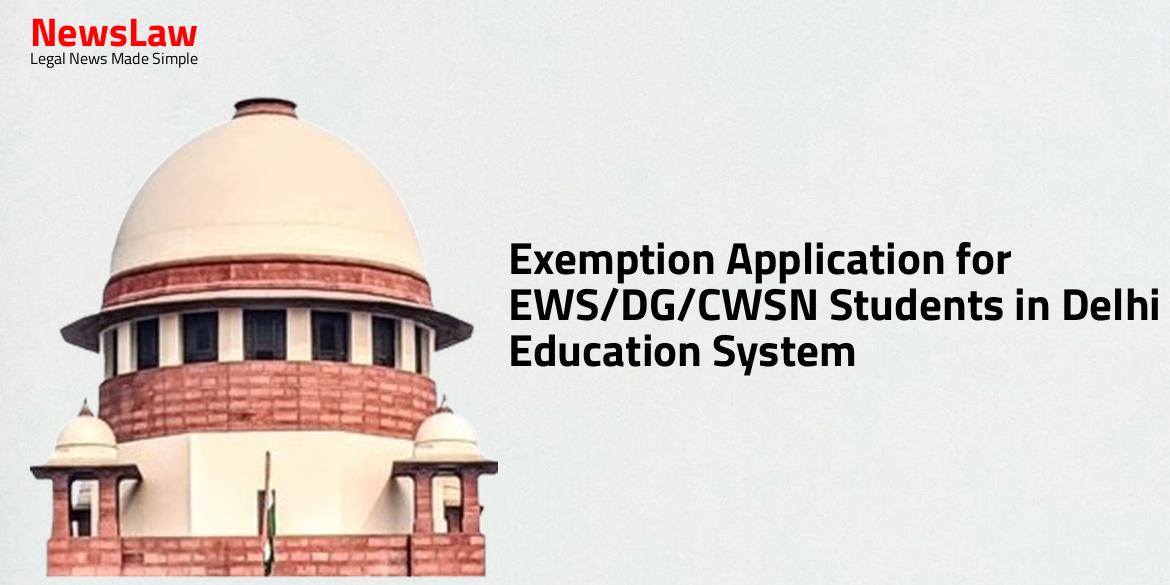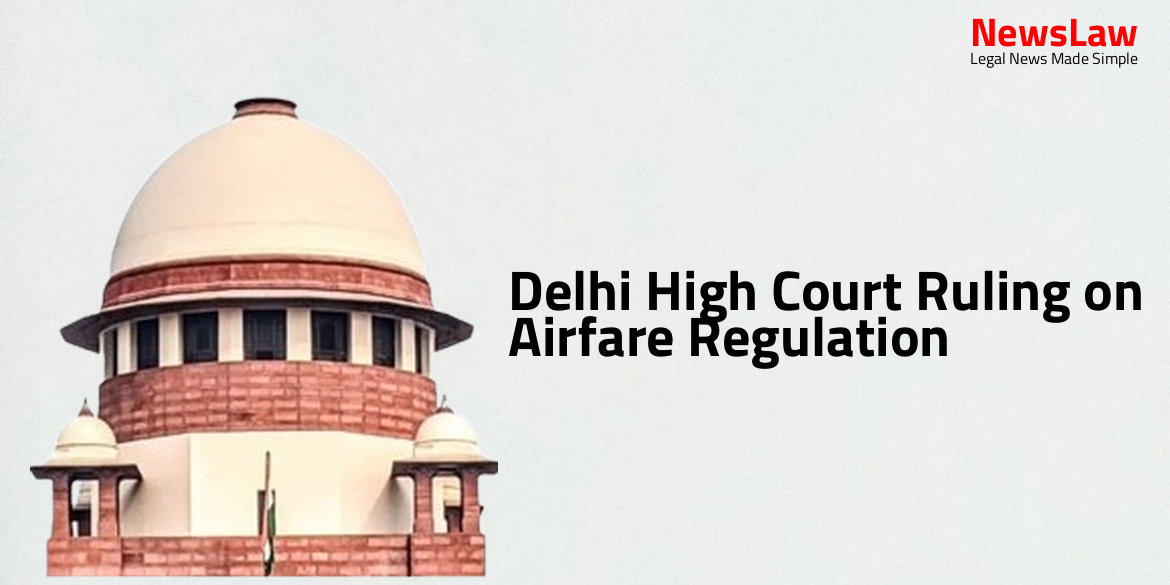Explore the intricacies of legal interpretation in a recent software import case where the High Court examined the concept of royalty and taxable income. The court’s analysis sheds light on the complexities of tax law and its application to international transactions. Stay informed with this insightful legal breakdown.
Facts
- EAC, a resident Indian end-user, imported shrink-wrapped computer software from the USA.
- The ITAT order in Samsung Electronics Co. Ltd. v. Income Tax Officer was followed in EAC’s appeal, resulting in success.
- The Revenue claimed non-deduction of TDS by EAC and the interest due under section 201(1A).
- The case falls under the first category of cases involving direct software purchases by Indian end-users from foreign suppliers.
- Multiple appeals related to similar cases were made to the High Court of Karnataka and the High Court of Delhi.
- The Revenue and assessees succeeded on varying grounds based on the question posed before the respective courts.
- The assessments were for the years 2001-2002 and 2002-2003.
- The Assessing Officer found the transaction involved copyright transfer amounting to royalty, requiring TDS by EAC.
- Section 195(1) of the Income Tax Act specifies that tax at source is deductible only from sums chargeable under the provisions of the IT Act.
- The High Court of Karnataka misinterpreted the law by concluding that tax at source must be deducted the moment there is a remittance.
- The judgment in the GE India Technology Centre case clarified that Section 195(2) is based on the principle of proportionality and applies to composite payments with an element of income chargeable to tax in India.
- The ITAT held that the payment made by the appellant to foreign software suppliers was not royalty and did not give rise to taxable income in India, hence no tax deduction at source was required.
- The High Court of Karnataka, however, based on the End-User Licence Agreement, concluded that the payment constituted royalty and income deemed to accrue in India, necessitating tax deduction at source.
Also Read: Limitation Period in Arbitration Disputes: Court’s Legal Analysis
Issue
- The High Court did not go into the merits of the case on the question of payment of royalty.
- The cases have been remitted back to the High Court for de novo consideration on merits.
- The main question for the High Court to answer is whether the ITAT was justified in holding that the amounts paid to foreign software suppliers were not ‘royalty’ and did not give rise to taxable income in India.
- The specific case considered was CIT v. Samsung Electronics Co. Ltd.
- Various DTAA agreements with USA, France, and Sweden were referenced in the judgment.
Also Read: Interpretation of Section 43B: Debentures vs. Interest Payment
Arguments
- The petitioners argued that the provisions of the India-USA DTAA would not apply to cases where deductions under section 195 of the Income Tax Act are to be made before assessments to tax.
- They contended that the persons liable to deduct TDS under section 195 of the Income Tax Act should have deducted tax at source based on the existence of explanation 4 of section 9(1)(vi) since 1976.
- The petitioners argued that the doctrine of ‘exhaustion’ cannot be automatically inferred but depends on the specific situation and legislative structure.
- They also relied on provisions of the India-Singapore DTAA in cases where payments made are not in the nature of royalty, and no income would be deemed to accrue in India.
- Arguments were made regarding the nature of a license based on the Indian Easements Act and OECD Commentary, emphasizing that the term ‘license’ does not conclusively determine the character of the transaction.
- Petitioners pointed out that retrospective amendments to the definition of royalty cannot be applied to assessment years when the expanded definition did not exist.
- The petitioners argued that payments made were for reimbursement of costs under a cost-sharing agreement, thus not constituting ‘sums chargeable under the Act’ under section 195 of the Income Tax Act.
- They emphasized the distinction between deductions under section 195 of the Income Tax Act and assessment provisions, stating that TDS deductions are not taxes but preemptive deductions before assessments.
- The petitioners also referred to Circular No. 10/2002 by CBDT, differentiating between remittance for royalties and remittance for supply of articles.
- Arguments were made regarding the interpretation of various legal provisions and judgments to support the petitioners’ claims.
- The contention that there is no transfer of any part of copyright in the transaction involving the sale of a copy of copyright software is not accepted.
- The judgments on computer software under sales tax and excise law are not relevant to income tax law due to different tax laws.
- Making copies for commercial use from a legally obtained copy of a computer program constitutes infringement.
- Rulings by the AAR are cited, including the Citrix Systems case, as being preferable to others.
- The Indian Government’s reservations on the OECD Commentary, especially concerning copyright and royalty, are highlighted.
- Reports by the CBDT and Committee on E-Commerce taxation proposing an equalization levy on specified transactions are mentioned.
- Despite the reliance on international law like the OECD Commentary, it must give way to domestic law as per section 9(1)(vi) of the Income Tax Act.
- The doctrine of first sale/principle of exhaustion is discussed in the context of the Copyright Act, emphasizing that it does not apply to distributors.
- Various judgments are referenced to support the argument that the exhaustion doctrine does not apply to distributors.
Also Read: Judicial Scrutiny of Arbitrary Taxation Statutes
Analysis
- Income deemed to accrue or arise in India
- Explanation 2 defines ‘royalty’ for the purposes of the clause
- Article 28 of the India-China DTAA provides for the entry into force of the convention and its effect
- Provisions regarding consequences of failure to deduct or pay tax
- Memorandum explaining the provision in the Finance Bill 2012 regarding royalty income
- Explanation 4 clarifies the transfer of rights in respect of any right, property, or information
- Section 195 explains the deduction of tax on interest or other sum payable to a non-resident
- Specific provisions regarding acts not constituting infringement of copyright
- Rights of owner against persons possessing or dealing with infringing copies
- Explanation 4 further clarifies the transfer of rights in respect of any right, property, or information
- Agreements with foreign countries and specified territories explained in Section 90
- The sale of a physical object containing an embedded computer programme is considered a sale of goods
- The law in this regard was declared by the court in Tata Consultancy Services v. State of A.P., 2005 (1) SCC 308
- The counsel for the assessees correctly pointed out this law
- Amounts paid by resident Indian end-users/distributors to non-resident computer software manufacturers/suppliers for resale/use of software through EULAs/distribution agreements not considered as royalty for the use of copyright
- Such payments do not give rise to any taxable income in India
- Persons referred to in section 195 of the Income Tax Act not liable to deduct TDS under section 195
- Provisions of Income Tax Act related to royalty not applicable in these cases
Decision
- The appeals from the impugned judgments of the High Court of Delhi are dismissed.
- The ruling of the AAR in Citrix Systems (AAR) (supra) is set aside.
- The answer to this question will apply to all four categories of cases enumerated by us in paragraph 4 of this judgment.
- The appeals from the impugned judgments of the High Court of Karnataka are allowed, and the aforesaid judgments are set aside.
Case Title: ENGINEERING ANALYSIS CENTRE OF EXCELLENCE PRIVATE LIMITED Vs. THE COMMISSIONER OF INCOME TAX (2021 INSC 137)
Case Number: C.A. No.-008733-008734 / 2018



